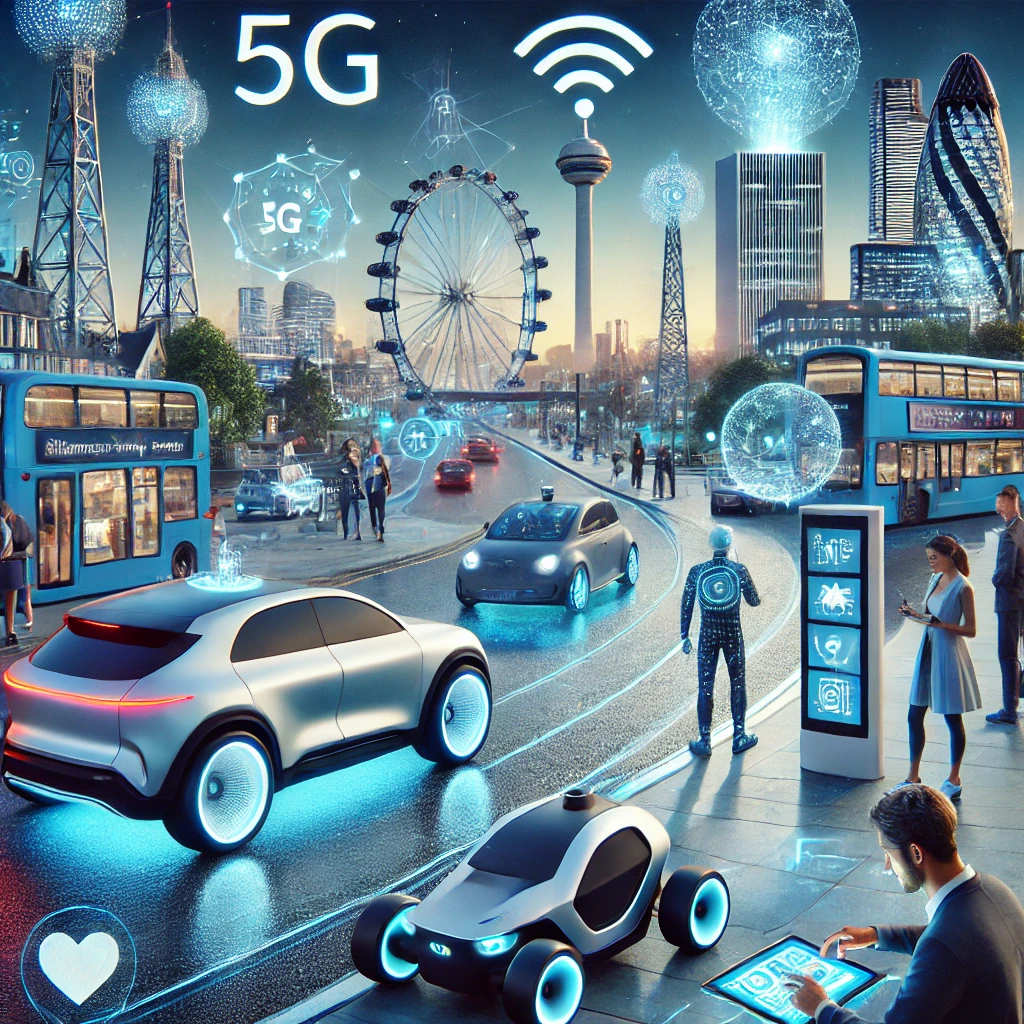- November 12, 2024
New Technology 2025 in UK: What to Expect

New Technology 2025 in UK: What to Expect
As we approach 2025, the UK is set to see remarkable advancements in technology that will impact every industry and aspect of life. From Generative AI to 5G expansion, emerging technologies are poised to reshape how businesses operate, how people live, and even how we interact with the digital world. Here’s an in-depth look at the top new technologies expected in the UK by 2025.

Generative AI
Generative AI is evolving fast, making waves in fields like content creation, data analysis, and even design. In 2025, it’s expected to become even more advanced, offering UK industries sophisticated tools to generate human-like text, images, and even music. Industries from marketing to entertainment will benefit, as Generative AI helps produce personalized content at scale, saving time and resources.
Quantum Computing
Quantum computing could redefine problem-solving by making previously impossible calculations feasible. While still in the early stages, by 2025, the UK may see quantum computing applied to complex problems in medicine, cryptography, and finance. The UK government’s investment in quantum research aims to make the country a leader in this high-tech field, potentially giving UK businesses a competitive edge globally.
Virtual Reality (VR) 2.0
VR technology has been around for some time, but VR 2.0 is set to deliver immersive, lifelike experiences in sectors like education, healthcare, and entertainment. Enhanced by realistic graphics and seamless integration, VR 2.0 will offer British consumers and professionals an innovative platform for training, therapy, and leisure activities.
5G Expansion
The rollout of 5G technology continues to transform the UK, and by 2025, it will be more widespread, providing faster, more reliable internet connectivity. 5G will power other emerging technologies, like autonomous vehicles and IoT devices, enabling real-time data processing and communication across various sectors, including healthcare, logistics, and public services.
Autonomous Vehicles
With recent government support for autonomous vehicle trials, driverless cars may be a reality on UK roads by 2025. Advances in AI and sensor technology will enable these vehicles to navigate roads safely, leading to changes in urban planning and transportation. Autonomous vehicles could reduce congestion and improve road safety, making them a critical part of the UK’s smart city initiatives.
Blockchain Beyond Crypto
While blockchain technology is mostly known for its use in cryptocurrency, by 2025, the UK will likely see more widespread applications across various industries. From supply chain transparency to secure voting systems, blockchain offers secure, immutable record-keeping that can enhance data privacy and reduce fraud.
Wearable Health Monitors
Wearable health technology has grown rapidly, and by 2025, it’s expected to be even more accurate and accessible. Advanced wearable devices will help the NHS monitor patients’ health data in real-time, allowing for early detection of diseases and reducing the need for frequent in-person visits.
Voice-Activated Technology
With smart speakers and virtual assistants like Alexa and Siri already in homes, voice-activated technology is set to advance significantly by 2025. Improved natural language processing (NLP) will make these devices more intuitive, capable of understanding context and complex queries, which could enhance customer service, online shopping, and accessibility.
Advanced Robotics
Robots are moving beyond traditional assembly lines, and by 2025, advanced robotics will support a variety of industries in the UK. From healthcare to agriculture, robots will perform precision tasks, reduce labor costs, and increase efficiency, helping businesses scale operations without compromising quality.
AI in Cybersecurity
As cyber threats become more sophisticated, the demand for AI-driven cybersecurity solutions is rising. By 2025, AI will play a crucial role in monitoring, detecting, and preventing cyberattacks in real-time. This advancement is particularly important for the UK’s financial and government sectors, where data security is paramount.